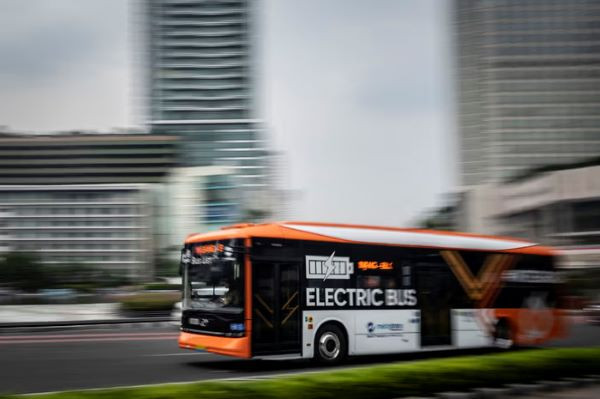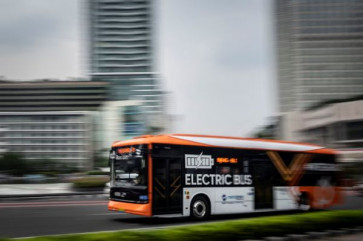Popular Reads
Top Results
Can't find what you're looking for?
View all search resultsPopular Reads
Top Results
Can't find what you're looking for?
View all search resultsEV fits the lifestyle shelf more than it fixes the system
EV adoption is an elite-driven transition that benefits those who already have private vehicles while leaving behind those who need sustainable mobility the most.
Change text size
Gift Premium Articles
to Anyone
J
akarta has a way of humbling you if you rely on public transportation. The morning commute feels like a survival game, pushing through crowds just to squeeze into an overloaded bus or train. The heat, the delays and the price hikes that never seem to come with actual improvements are the reality for millions.
Owning a private vehicle was never an option for most of us. We inhaled the pollution, sat through the endless traffic and got on with our days.
So when the government rolled out electric vehicle (EV) incentives, it was hard not to notice who they were meant for. Certainly not the people packed into a TransJakarta bus or running to catch the last commuter train (KRL) home.
While headlines celebrated Indonesia’s shift toward clean energy, it became clear that EV adoption was being placed on a lifestyle shelf, positioned as an upgrade for those who already had the privilege of private transport. It was a transition happening around us, but not for us.
The way EVs are being introduced in Indonesia shows exactly who this transition is meant to serve. Up to Rp 80 million (US$4,847) in subsidies are available for private car owners who switch to EVs, while motorbike riders, the backbone of urban mobility, get only Rp 8 million.
Public transport electrification remains a low priority. Jakarta’s TransJakarta system has over 4,700 buses, but only 100 of them are electric. Other cities have barely begun the transition. The government has set a target to fully electrify public transport by 2030, but with financing gaps and regulatory obstacles, the goal looks elusive.
At the same time, gig workers from ride-hailing apps have been some of the first to use EVs, but their situation tells a different story. The companies offer installment plans for electric motorbikes, but installments are not the same as ownership. These workers are still locked into financial commitments, paying for something that wealthier car owners receive direct subsidies for. It is not empowerment, it is another financial trap.



















